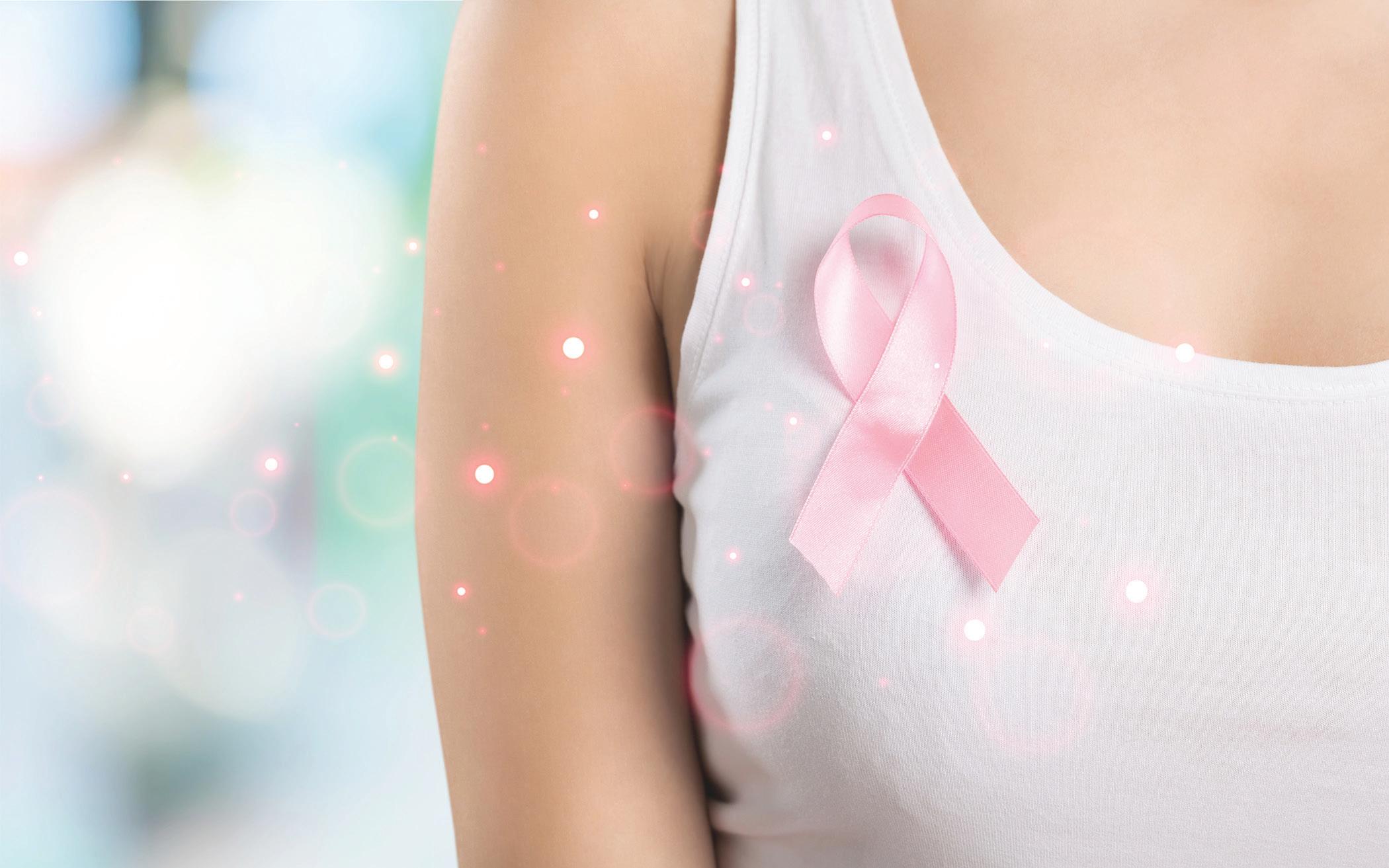
4 minute read
HopeHealth: Let's Talk About Breast Health
from October 2021
by VIP Magazine
Let’s Talk About Breast Health
story by Brinda Chokshi, MD, of HopeHealth
Advertisement
The leading cause of death from cancer for women worldwide is breast cancer - and second in the United States. It is through patient awareness and a willingness to team with providers that breast cancer can be detected early and treated, reducing the risk of death. Partnering with your provider and regular self-exams can save lives. I often discuss breast health with my patients. So, what do I tell them when discussing breast health? Here are the most common questions I hear, and my recommendations:
What can I do to maintain good breast health?
I cannot emphasize this enough: develop a partnership with your provider! We rely on you to work with us and provide the bigger picture of your health rather than just the snapshot we see during the office visit. This means doing things like self-breast exams for new or unusual lumps and getting annual mammograms.
When should I start and how often should I do self-breast exams?
I recommend women begin getting familiar with their breasts at the onset of menstruation during puberty. Make a habit of checking yourself on the day of your birthday, so for example, if you were born on Jan. 20, then check your breasts for any changes on the 20th of each month. Self-exams improve the likelihood of early detection of issues like cancer, but it is also important to note that not all lumps can be felt. This is why it is to your benefit to see your provider annually, as well as do annual mammograms when age appropriate. Cancers can appear suddenly, sometimes within six months of a mammogram with no findings, so regular self-exams and annual doctor visits go a long way towards early detection and treatment when needed.
Should men do self-exams?
Yes, men, or anyone with breast tissue should make a habit of examining their breasts. Sometimes during puberty, estrogen, the hormone responsible for breast growth in women, can produce breast tissue in males, which allows for the possibility of breast cancer later in life. I always recommend all my patients get familiar with their breasts/chest and let me know if there are any changes.
What is a mammogram and when should I have one?
Mammograms are special x-rays performed on the breasts to visualize any changes to the tissue, such as the appearance of a mass. Mammograms have been shown to identify masses in patients as early as three years before a lump could be felt. Evidence shows that regular mammogram screenings are associated with a reduction in deaths from breast cancer. I recommend that women should have their first mammogram between 35 and 40 years of age and have them annually after that. By ages 70 to 75, I leave it up to the patient to make the decision whether to continue with annual mammograms, and by age 80, if there is no history of breast cancer, it is ok to stop.
I am in menopause and am on hormone replacement therapy. Should I do anything differently?
Certain hormone replacement therapies have been shown to increase the risk of developing breast cancer, so I recommend being vigilant with self-breast exams, regular mammograms, and discussing any additional steps you can take with your provider to identify cancer early should it occur.
Should I do my mammogram while COVID-19 is still a risk?
Absolutely! Unfortunately, in addition to the many other challenges created by the global pandemic, many people have put preventative care on hold, resulting in more conditions like cancer being detected much later, delaying treatment. I encourage patients to have their mammogram screenings at this time because early detection is key to achieving the best outcomes. Trust that the technicians have been trained to mitigate the risks of transmitting COVID-19 by wearing personal protective equipment for their safety and yours. Additionally, wearing a mask in public has been shown to reduce transmission of COVID-19, and getting a vaccine has prevented or decreased the severity of COVID-19 infections.
What should I do if I detect a lump?
See your provider as soon as possible for a more thorough exam and any necessary testing to rule out a serious condition like breast cancer. Like your overall health, eating well, maintaining a healthy weight, and regular exercise can contribute to better breast health. If you have a family history of breast cancer, be sure to discuss it with your provider and develop a preventive care plan. And if you ever have any questions, always reach out to your provider.

360 NORTH IRBY ST. FLORENCE 843.667.9414 | HOPE-HEALTH.ORG
Brinda Chokshi, MD
Dr. Brinda Chokshi is a primary care provider at the HopeHealth Medical Plaza in Florence and specializes in internal medicine.












